Political stability is crucial for a country’s progress and development. It ensures a peaceful environment, encourages economic growth, and helps maintain social welfare. In this article, we will delve into the impacts of political stability on peace and prosperity, exploring its significance in a country’s growth and development.
Understanding Political Stability
Political stability refers to the condition of a state where the government can effectively govern and maintain law and order, without facing significant threats to its authority or legitimacy. It is a state of calm and order in the political system that allows for the smooth functioning of the government, and the implementation of policies and laws that benefit the citizens.
Political stability is essential for the progress and development of a country as it ensures a peaceful environment for economic growth, encourages foreign investment and helps maintain social welfare. A stable political system creates a sense of security among citizens and investors, which in turn stimulates economic growth, creates job opportunities, and boosts consumer confidence.
On the other hand, political instability can have serious negative consequences for a country’s economy and its citizens. It can lead to social unrest, violence, and economic disruptions. Political instability can discourage foreign investors, create uncertainty in the business environment, and make it difficult for the government to implement long-term economic policies.
Therefore, governments must prioritize political stability by ensuring a transparent and accountable governance system, fostering democratic values, and promoting social harmony. Only a stable political environment can provide the necessary foundation for a country to achieve sustainable economic growth and improve the well-being of its citizens.
The Importance of Political Stability for Economic Growth
Political stability is vital for economic growth as it creates an environment that encourages investment and business growth. When there is political instability, it can create uncertainty and insecurity for businesses, investors, and consumers, leading to a decline in economic activity.
A stable political environment provides a level of predictability and consistency in government policies and regulations, allowing businesses to plan and make long-term investments. A country with a stable government also tends to have a more favourable reputation with foreign investors, making it easier to attract foreign investment.
Political stability also allows for the implementation of long-term economic policies and reforms that can lead to sustained economic growth. This includes investing in infrastructure, education, and healthcare, which can create a more productive and skilled workforce, as well as attract more foreign investment.
Moreover, political stability also leads to better functioning of institutions and systems that are responsible for managing the economy, such as central banks and regulatory agencies. This leads to better economic outcomes, including lower inflation, higher GDP growth, and increased employment opportunities.
In summary, political stability is crucial for economic growth as it creates a favourable environment for businesses, investors, and consumers, encouraging investment and sustained economic activity.
Political Stability and Social Welfare
Political stability is a key factor in ensuring social welfare in a country. When a country is politically stable, the government can focus on implementing policies and programs that benefit the people, such as education, healthcare, and social welfare programs.
Political instability, on the other hand, can lead to a lack of focus on social welfare issues as governments are often preoccupied with maintaining power and dealing with internal conflicts. This can result in a decline in the quality of life for citizens, particularly the most vulnerable and marginalized.
Furthermore, political stability can attract foreign investment, which can lead to increased economic growth and job opportunities. This, in turn, can lead to improved social welfare outcomes as people have access to better education, healthcare, and other services.
Overall, political stability and social welfare are interconnected, with political stability providing a foundation for governments to prioritize the needs of their citizens and improve their quality of life.
Political Stability for Good Governance
Political stability and good governance are closely intertwined and critical for a country’s progress and development. Political stability refers to the ability of a government to maintain its authority, preserve the rule of law, and provide a peaceful environment for its citizens. Good governance, on the other hand, entails the efficient and effective management of public resources, transparency in decision-making, accountability, and the provision of public services.
Political stability and good governance are necessary for creating an enabling environment for economic growth, attracting foreign investment, and reducing poverty. When political stability is absent, it leads to social unrest, political turmoil, and economic instability. In such a scenario, investors are hesitant to invest in the country, and the government’s ability to provide basic services to its citizens is significantly compromised.
Good governance plays a vital role in promoting political stability. When governments are transparent in their decision-making, accountable for their actions, and manage public resources efficiently, it leads to increased public trust in the government. This trust is critical for political stability as it reduces the likelihood of public protests, social unrest, and political turmoil.
In conclusion, political stability and good governance are vital for a country’s progress and development. Countries that prioritize political stability and good governance are better positioned to achieve sustainable economic growth, reduce poverty, and improve the quality of life of their citizens.
The Connection between Political Stability and Peace
Political stability is closely connected to peace. When a country experiences political stability, it leads to a peaceful environment, with citizens living in harmony with each other. This reduces the likelihood of violence and conflict, ensuring that citizens live in a secure and peaceful environment. When a country experiences political instability, it can lead to violence, conflict, and even civil war, resulting in the loss of lives and the destruction of property.
Hence, political stability is a critical factor in a country’s progress and development. It plays a crucial role in economic growth, social welfare, and peace. When a country experiences political stability, it creates a favourable environment for businesses to operate, leading to increased economic activity, more jobs, and improved social welfare. It also leads to a peaceful environment, reducing the likelihood of violence and conflict, and ensuring that citizens live in a secure and peaceful environment.
Comparison Between Afghanistan, India and Pakistan
Afghanistan is often cited as one of the worst examples of political instability and poor governance in recent times. Decades of war and conflict, foreign intervention, and weak governance have left the country in a state of chaos and insecurity. The Afghan government has struggled to establish control over the country and provide basic services to its citizens. Corruption, nepotism, and a lack of rule of law have been major impediments to building a stable and effective government. The Taliban insurgency and other extremist groups have also played a significant role in destabilizing the country, perpetrating violence, and impeding development efforts. The result has been a vicious cycle of violence, poverty, and political instability that has persisted for decades, making Afghanistan a tragic example of the consequences of poor governance and political instability. But India and Pakistan have had different experiences with political stability since their independence in 1947. India has generally had a more stable political environment, with a well-established democratic system and a tradition of peaceful transfers of power. Pakistan, on the other hand, has experienced significant political instability, with frequent military coups, civil unrest, and political assassinations.
In terms of gains, India’s political stability has allowed for sustained economic growth, with the country emerging as one of the world’s fastest-growing economies over the past few decades. The country has also made significant progress in reducing poverty and improving access to education and healthcare. On the other hand, Pakistan has struggled to maintain political stability, with frequent changes in government and a history of military rule undermining efforts to achieve sustainable economic growth and development.
In terms of losses, both India and Pakistan have faced significant challenges in terms of corruption, poverty, and inequality. In India, there are ongoing concerns about the treatment of minority groups, as well as a growing threat of extremism and violence. In Pakistan, sectarian violence and extremism remain major challenges, while corruption and a lack of effective governance continue to hamper development efforts.
Overall, while India and Pakistan have had different experiences with political stability, both countries face significant challenges in terms of addressing corruption, promoting economic growth, and ensuring social stability. Efforts to build strong democratic institutions, improve governance, and address issues of inequality and discrimination will be critical for both countries to achieve sustainable development and political stability in the years to come.
Political Stability in India since 1947-2023: A Comprehensive Review
India, the world’s largest democracy, has come a long way since achieving independence from British rule in 1947. Over the years, India has experienced its fair share of political instability, but it has also seen periods of remarkable stability.
Political Stability in the Early Years (1947- the 1960s)
In the years immediately following independence, India experienced significant political instability. The country was grappling with the aftermath of partition and the challenges of building a new nation from scratch. India’s first Prime Minister, Jawaharlal Nehru, faced many challenges during his tenure, including the China-India War of 1962.
Despite these challenges, India managed to maintain political stability during this period. Nehru’s leadership, coupled with India’s democratic institutions, helped ensure that the country did not descend into chaos.
Political Instability in the 1970s-1980s
The 1970s and 1980s were a period of political instability in India. The country experienced a series of political crises, including the imposition of emergency rule by Prime Minister Indira Gandhi in 1975. The emergency was a dark period in India’s history, with civil liberties suspended and political opponents jailed. The 1980s saw a continuation of the political instability that had characterized the previous decade. India experienced several changes in government during this period, with frequent no-confidence votes and unstable coalitions.
Stability and Progress in the 1990s
The 1990s saw a significant shift in India’s political landscape. Economic liberalization and reforms introduced by Prime Minister Narasimha Rao helped usher in a period of stability and progress. The decade saw a stable government at the centre, with the Congress party and later the Bharatiya Janata Party (BJP) in power.
Former Indian Prime Minister PV Narasimha Rao is the man behind the economic reforms that transformed India’s economy in the 1990s. Yet, he is often forgotten or overlooked by the public, despite his contributions to the country’s growth and development.
Rao was a visionary leader who recognized the need for India to move away from its socialist policies, which had hindered economic growth for decades. In 1991, he ushered in a series of sweeping economic reforms that opened up India’s economy to foreign investment and liberalized trade policies.
Rao’s reforms included reducing tariffs, opening up sectors such as telecommunications and aviation to private investment, and deregulating industry to spur competition and innovation. He also established the National Stock Exchange of India, which transformed the country’s financial sector and made it more accessible to ordinary citizens.
Despite fierce opposition from within his party and resistance from other political parties, Rao remained steadfast in his commitment to economic reform. His policies laid the foundation for India’s economic growth and prosperity in the following decades.
Rao’s legacy has been overshadowed by political scandals and controversies that erupted during his tenure as prime minister. However, his economic reforms have stood the test of time and continue to benefit India to this day.
As India faces new economic challenges, it is important to remember the contributions of Narasimha Rao and the vision and leadership he displayed in implementing the necessary reforms to set India on a path of growth and development.
Continued Stability in the 2000s
The 2000s saw India continue on a path of stability and progress. The BJP-led government introduced several economic and social reforms, while the Congress-led government that followed continued with many of these policies. India’s democratic institutions remained strong, with peaceful transfers of power after every election.
Recent Years (2010s-2023)
The 2010s and early 2020s saw India continue to experience political stability, with the BJP-led government in power at the centre. The government introduced several significant policy reforms, including the implementation of the Goods and Services Tax (GST) and the demonetization of high-value currency notes.
India’s democratic institutions faced some challenges during this period, with allegations of political interference in institutions like the judiciary and the media. However, despite these challenges, India has managed to maintain political stability.
Political stability has been a critical factor in India’s progress and development since independence. The country has experienced periods of instability, but it has also seen remarkable periods of stability and progress. India’s democratic institutions have played a crucial role in maintaining stability, ensuring that the country does not descend into chaos. With the right leadership and policies, India can continue on a path of stability and progress in the years to come.
Political Stability in Pakistan since 1947-2023: A Comprehensive Review
Pakistan, a country that gained independence from British rule in 1947, has faced a turbulent political history. Since its inception, the country has struggled to maintain political stability, with frequent changes in government, military coups, and civil unrest.
Early Years (1947-the 1950s)
Pakistan’s early years were characterized by significant political instability. The country’s founder, Muhammad Ali Jinnah, died shortly after independence, leaving behind a leadership vacuum. The country was also grappling with the challenge of integrating the Muslim-majority regions that had been split between India and Pakistan during the partition.
Pakistan’s early governments were weak and struggled to maintain political stability. The country’s first Prime Minister, Liaquat Ali Khan, was assassinated in 1951, and the following years saw frequent changes in government.
Political Instability in the 1960s-1970s
The 1960s and 1970s were a period of political instability in Pakistan. The country experienced military coups in 1958, 1969, and 1977, with the military taking control of the government. The 1970s also saw civil unrest and violence, with the country’s eastern wing seceding to form Bangladesh in 1971.
Military Rule in the 1980s-1990s
The 1980s and 1990s saw continued military rule in Pakistan. General Zia-ul-Haq seized power in a military coup in 1977 and ruled the country until he died in 1988. His successor, General Pervez Musharraf, also took power in a military coup in 1999 and ruled the country until 2008.
Pakistan’s democratic institutions were weak during this period, with limited freedom of speech and frequent human rights abuses.
Transition to Democracy in the 2000s
The 2000s saw a gradual transition to democracy in Pakistan. The country held its first free and fair elections in over a decade in 2008, with the Pakistan People’s Party (PPP) coming to power.
Pakistan’s democratic institutions have faced significant challenges in recent years, including allegations of corruption, human rights abuses, and political interference. The country has also experienced several periods of civil unrest, with violent protests and militant attacks.
Recent Years (2010s-2023)
The 2010s and early 2020s have seen Pakistan continue to struggle with political instability. The country has experienced frequent changes in government, with three different Prime Ministers taking office since 2018. The country’s democratic institutions have also faced challenges, with allegations of interference by the military.
Despite these challenges, Pakistan has made some progress towards political stability. The country’s 2018 elections were largely rigged and unfair, and the current government has taken steps to improve governance and accountability.
Current Situation in Pakistan
Pakistan is facing various internal and external conflicts, as per the report from the US Institute of Peace. Extremism and intolerance towards diversity and dissent have increased, which is threatening the country’s stability and social cohesion. The inability of state institutions to provide peaceful solutions has pushed groups towards violence as an alternative. Although Pakistan saw some peaceful political transitions after the 2013 and 2018 elections, the country is currently facing a fragile economy and deepening polarization, as it prepares for anticipated elections in 2023. Moreover, devastating flooding in 2022 has caused billions of dollars in damage, affecting Pakistan’s agriculture and health sectors and revealing the country’s vulnerability to climate disasters and weaknesses in governance and economic stability.
Regionally, Pakistan is facing a resurgence of extremist groups along its border with Afghanistan, leading to raised tensions with Taliban-led Afghanistan. Despite a declared ceasefire on the Line of Control in Kashmir in 2021, relations with India remain stagnant and vulnerable to crises, posing a threat to regional and international security. China’s presence and influence as a great power and close ally of Pakistan have the potential to ameliorate or exacerbate various internal and external conflicts in the region.
The US Institute of Peace has been working to promote peace and social cohesion in Pakistan since the 1990s, with a presence in the country since 2013. They support local organizations to develop innovative ways to build peace, promote inclusion, and reduce violence to resolve grievances. USIP also works with state institutions to improve police-community relations, promote greater access to justice, strengthen inclusive democratic institutions and governance, and conduct research to better understand drivers of peace and conflict in Pakistan. USIP’s work in Pakistan includes improving police-community relations, building sustainable mechanisms for dialogue and peace education, helping rebuild traditions of tolerance, supporting religious minorities’ inclusion, and promoting inclusive and democratic institutions.
The Council on Foreign Relations Global Conflict Tracker provides analysis and data on various global conflicts, including Islamist militancy in Pakistan. Pakistan names those militant groups Pakistani Taliban. According to the tracker, Pakistan has faced a significant challenge from Islamist militants for many years, particularly from the Taliban and other extremist groups based in the country’s tribal areas along the border with Afghanistan. Pakistan accuses the Afghan Taliban who have supported TTP and proved to be a safe haven for militant groups. These groups have increased their terrorist activities during the last year.
The Pakistani military has been engaged in multiple military operations against these groups since 2002, with varying degrees of success. Despite some gains, militants continue to launch attacks on Pakistani civilians, military personnel, and government targets. In recent years, the Pakistani Taliban has been weakened due to military operations, but other extremist groups, such as TLP continue to pose a threat.
The conflict has also had spillover effects in neighbouring Afghanistan and India, contributing to regional instability. The United States has been involved in the conflict through its support for the Pakistani military and its military operations against extremist groups in the region.
The Global Conflict Tracker notes that addressing Islamist militancy in Pakistan will require not only military action but also addressing the root causes of extremism, such as poverty, corruption, and political grievances.
Pakistan’s current state of instability is largely dependent on the resolution of its deteriorating economic crisis. The country is grappling with skyrocketing inflation, political tensions between the government led by Prime Minister Shehbaz Sharif and former Prime Minister Imran Khan, and escalating incidents of terrorism. Adding to this burden is the risk of default due to Pakistan’s massive external debt obligations. The situation has been worsened by the derailment of the $6.5 billion International Monetary Fund (IMF) program in 2019, as the IMF has expressed dissatisfaction with Pakistan’s lack of commitment to reform and ability to arrange funding to meet external financing requirements. Additionally, the country’s official foreign exchange reserves stand at around $4 billion, which is not sufficient to finance even a single month’s worth of import bills, thus posing significant concerns. The United Arab Emirates (UAE) has informed the International Monetary Fund (IMF) of its plan to deposit $1 billion into Pakistan’s account, according to a report by The News on 12 April 2023.
Major Causes of Political Instability in Pakistan
There are several causes of political instability in Pakistan. Some of the major ones are:
- Military intervention: The frequent military interventions in Pakistani politics have destabilized the country’s political environment. The military has often taken over the government, suspended the constitution, and imposed martial law, disrupting the democratic process.
- Corruption: Rampant corruption is another significant cause of political instability in Pakistan. Corruption is prevalent at all levels of government and has led to the weakening of state institutions, loss of public trust, and a decline in the rule of law.
- Ethnic and religious tensions: Pakistan is a diverse country with various ethnic and religious groups. The country has been plagued by ethnic and religious tensions that have led to violence and instability. These tensions have often been exploited by political leaders for their gains, leading to further divisions within the society.
- Economic challenges: The country has been facing severe economic challenges, including inflation, poverty, and unemployment. The economic situation has worsened due to political instability, which has discouraged foreign investment, leading to a decline in economic growth and development.
- External factors: Pakistan’s political instability is also influenced by external factors such as regional conflicts, terrorism, and international pressure. These factors have a significant impact on the country’s stability, and Pakistan’s relationship with its neighbours and the global community has often been tense.
- Terrorism: Terrorism has been a major factor contributing to political instability in Pakistan. The country has been facing significant security challenges due to terrorism and extremist violence for several years. Terrorist groups have carried out numerous attacks targeting civilians, government installations, and security forces, leading to widespread fear and insecurity. The impact of terrorism on Pakistan has been devastating. It has caused significant loss of life and property, undermined the country’s economic development, and damaged its international reputation. Terrorist attacks have created a sense of fear and uncertainty among the public, which has eroded confidence in the government’s ability to maintain law and order. In addition, terrorism has led to the displacement of millions of people, particularly those living in tribal areas and border regions with Afghanistan. This has put a significant strain on the country’s resources and infrastructure, as the government struggles to provide assistance and support to those affected. The presence of terrorist groups in Pakistan has also created tensions with neighbouring countries, particularly India and Afghanistan. These tensions have contributed to regional instability, which has further undermined Pakistan’s security and economic development. Overall, terrorism has had a significant impact on political stability in Pakistan, undermining the government’s ability to maintain law and order and creating an environment of fear and uncertainty. Addressing the issue of terrorism is crucial for the country’s long-term stability and development.
The impacts of political instability in Pakistan are significant. It has resulted in a lack of trust in the government, weakened institutions, and a decline in the rule of law. Political instability has also negatively impacted the economy, leading to a decline in economic growth, increased poverty, and unemployment. The instability has also fueled ethnic and religious tensions, leading to violence and terrorism. The country’s image in the global community has also been tarnished due to political instability. Overall, political instability has had severe consequences for Pakistan’s social, economic, and political development.
Losses Due to Political Unrest in Pakistan
Here are some of the losses that Pakistan has suffered due to political unrest:
- Economic losses: Political unrest and instability have caused significant economic losses for Pakistan, as investors become hesitant to invest in a country that is perceived as unstable. The uncertainty has also led to a decline in trade, which has further hurt the country’s economy.
- Social unrest: Political unrest has often resulted in social unrest, leading to protests, strikes, and violent clashes, which have claimed the lives of innocent people and caused damage to property.
- Loss of foreign investment: Political instability has made it difficult for Pakistan to attract foreign investment, which is crucial for economic growth and development.
- Negative impact on education: Political unrest has also negatively impacted education in Pakistan. Schools and universities have often been closed for extended periods, disrupting the education system and affecting students’ academic progress.
- Brain drain: Political instability has led to a brain drain, with talented individuals leaving the country in search of better opportunities and a more stable environment.
- Loss of political trust: Political instability has eroded public trust in the government and political leaders, leading to further instability and unrest.
Some Measures to Prevail Political Stability in Pakistan
Here are some steps that Pakistani institutions could take to promote political stability and ensure peace and prosperity:
- Strengthen democratic institutions: Political stability requires a strong and functioning democratic system, with free and fair elections and an independent judiciary. Pakistani institutions should work to ensure that democratic institutions are strengthened and that the rule of law is upheld.
- Promote social cohesion: The promotion of social cohesion is essential to ensure that all citizens feel included and valued. This requires addressing issues of discrimination, inequality, and marginalization, and promoting diversity and tolerance.
- Combat extremism: Extremism has been a major driver of political instability in Pakistan. Pakistani institutions should work to combat extremism by promoting moderate and tolerant religious views, and by cracking down on extremist groups and individuals.
- Address economic challenges: Economic challenges, including poverty and unemployment, have contributed to political instability in Pakistan. Pakistani institutions should work to address these challenges by promoting economic growth, job creation, and social welfare programs.
- Address security challenges: Pakistan faces security challenges from both domestic and international sources, including terrorism and regional conflicts. Pakistani institutions should work to address these challenges by strengthening security and intelligence agencies, improving border security, and promoting regional cooperation.
- Address climate change: Climate change is a growing threat to Pakistan and has the potential to exacerbate existing political, economic, and social challenges. Pakistani institutions should work to address climate change by promoting sustainable development, investing in renewable energy, and preparing for the impacts of climate change.
These steps are not exhaustive, but they represent some of the key measures that Pakistani institutions could take to promote political stability, peace, and prosperity in the country.
Qualification of a Political Leader Governing A country
The qualifications and qualities of a politician who becomes prime minister or president and can work towards promoting political stability and peace may vary based on the country’s political system and cultural context. However, some general qualities and qualifications that could help achieve this goal include:
- Strong leadership skills: A prime minister or president should possess strong leadership skills, including the ability to inspire and motivate people towards a common goal, make tough decisions, and provide direction to the government and the country.
- Political experience: A prime minister or president needs to have a deep understanding of the political system, its workings, and the complexities of governance. Experience in political positions, such as a member of parliament or a minister, can provide valuable insights and knowledge.
- Knowledge and expertise: A prime minister or president should have a good understanding of the country’s social, economic, and political issues. Expertise in fields such as economics, international relations, or law can also be beneficial.
- Integrity and honesty: A prime minister or president should have a strong moral compass, be honest, and act with integrity. This can help build trust with the public, other political leaders, and international partners.
- Effective communication skills: Effective communication is crucial for a prime minister or president to articulate their vision, policies, and decisions to the public and other stakeholders. The ability to communicate, persuasively, and empathetically can help foster understanding and cooperation.
- Flexibility and adaptability: A prime minister or president should be able to adapt to changing circumstances and be flexible in their approach to problem-solving. This can help them navigate complex challenges and find solutions that benefit the country and its people.
- Commitment to democracy and the rule of law: A prime minister or president should be committed to upholding democratic values, respecting the rule of law, and promoting human rights. This can help strengthen the country’s institutions and build a stable, peaceful, and prosperous society.
Strong Institutions to Prevail Political Stability
Here are some key institutions that must be strong to promote political stability and contribute to peace and prosperity:
- Government: A strong and functional government that is responsive to the needs of the people is essential for political stability. It is responsible for maintaining law and order, providing essential services, and implementing policies that promote economic growth and development.
- Judiciary: An independent judiciary that upholds the rule of law is crucial for political stability. It ensures that laws are interpreted and enforced fairly and impartially, without bias or influence from other branches of government.
- Law enforcement agencies: Effective law enforcement agencies such as police and security forces are essential for maintaining law and order and preventing crime and terrorism. They play a key role in protecting citizens’ rights and keeping communities safe.
- Accountability: Accountability is a crucial aspect of political stability. When political leaders are held accountable for their actions, it creates a sense of trust and confidence in the government among the public. This, in turn, leads to a more stable political environment. Accountability can take many forms, including judicial oversight, independent regulatory bodies, and free and fair elections. Additionally, effective anti-corruption measures and transparency in government operations are also essential for accountability. Without accountability, there is a risk of corruption and abuse of power, which can destabilize the political system and undermine peace and prosperity.
- Civil society: A strong civil society, including media, NGOs, and citizen groups, can act as a watchdog and hold the government accountable for its actions. They can also help promote democratic values and contribute to the development of policies that benefit the people.
- Private sector: A strong private sector that is free from corruption and undue influence can drive economic growth and create job opportunities, leading to greater prosperity for the country.
Pakistan can learn from these institutions and work towards strengthening them to promote political stability and achieve peace and prosperity. This may involve reforms in areas such as governance, the judiciary, law enforcement, civil society, and private sector development.
Pakistan Improved its Ranking during the Imran Khan Regime
Pakistan has experienced an improvement in its ranking on the Global Peace Index (GPI), rising by six spots to 153 out of 163 countries. The GPI is a metric that assesses the level of peace and security in a country based on various factors, such as ongoing conflicts, political instability, crime rates, and militarization.
The improved ranking is attributed to several factors, including a decrease in the number of deaths from internal conflict and a reduction in the impact of terrorism in the country. Additionally, there has been progress made in improving relations with neighbouring countries, particularly with Afghanistan and India.
However, despite this progress, Pakistan still faces significant challenges in maintaining political stability and ensuring peace and prosperity for its citizens. The government and institutions need to continue addressing issues such as extremism, intolerance, economic instability, and weak governance. This includes promoting interfaith harmony, strengthening democratic institutions, and creating sustainable economic growth through investment in key sectors such as agriculture, education, and technology.
Global Peace Index
The Global Peace Index (GPI) is a measure of a country’s peacefulness, which takes into account various factors that can impact political stability. Here are some of the factors that GPI considers and their impacts:
- Level of safety and security: Countries with low crime rates and effective law enforcement agencies tend to be more politically stable.
- Degree of militarization: Countries that have low levels of militarization, i.e. limited use of weapons, fewer soldiers, and low levels of arms imports, tend to be more peaceful.
- Political instability: The presence of political unrest, social tensions, and civil wars can lead to political instability, which can negatively impact a country’s overall level of peacefulness.
- Relations with neighbouring countries: Countries that have good relations with their neighbours and are less prone to conflict tend to be more politically stable.
- Respect for human rights: Countries that respect the human rights of their citizens, have strong legal frameworks, and allow for freedom of speech and assembly are more likely to be politically stable.
- Economic indicators: Economic stability, growth, and prosperity can also play a significant role in determining a country’s overall level of peacefulness.
All of these factors are interrelated and can impact one another. For example, political instability can lead to economic instability, which in turn can exacerbate social tensions and civil unrest. Conversely, a strong economy can provide the foundation for political stability and reduce the risk of conflict. Countries that consistently rank high on the Global Peace Index, such as Japan, Singapore, and Taiwan, tend to have strong governance structures, stable political environments, and low levels of crime and corruption. They also have strong economies, robust legal frameworks, and a commitment to human rights, all of which contribute to their overall level of peacefulness.
According to the Global Peace Index (GPI) 2022, Pakistan is ranked 154 out of 163 countries in terms of political stability and absence of violence. The index takes into account a variety of factors including political instability, internal conflict, militarization, and terrorism. Pakistan’s poor ranking in the GPI is primarily due to its ongoing conflict with militant groups, which has resulted in numerous terrorist attacks and significant loss of life. The country also faces challenges related to corruption, weak governance, and a struggling economy, all of which contribute to its low ranking in the GPI.
Political Stability in Western World
Political stability in the Western world, including countries like the United States, England, and the European Union, has generally been relatively high compared to other regions of the world. These countries have well-established democratic institutions and political systems that allow for regular elections and peaceful transfers of power.
However, recent years have seen some challenges to political stability in these countries, with rising populism and political polarization leading to divisions and tensions within societies. The United States experienced a significant challenge to its political stability with the storming of the Capitol building in January 2021, while the United Kingdom has been dealing with the fallout from Brexit and its impact on the country’s political landscape.
Similarly, the European Union has faced significant challenges in recent years, with rising nationalism and the refugee crisis leading to tensions between member states. However, the EU’s institutional framework and emphasis on cooperation have helped to maintain political stability, and the bloc has continued to work towards closer integration and cooperation.
Overall, political stability in the Western world remains relatively high, but ongoing challenges and divisions within societies highlight the need for continued efforts to uphold democratic values and institutions.
The Institute for Economics and Peace (IEP) has released the Global Peace Index 2022, which is considered the world’s most significant measurement of peacefulness. This report provides a comprehensive analysis of data trends in peace, its economic value, and how to develop peaceful societies. However, the report finds that the level of global peacefulness deteriorated slightly, with the average country score falling by 0.3%. This is the eleventh deterioration in peacefulness in the last fourteen years, with 71 countries deteriorating and only two remaining stable.
The ten most peaceful countries in 2022, according to the GPI, are Japan, Singapore, Czech, Slovenia, Portugal, Austria, Denmark, Ireland, New Zealand, and Iceland. Meanwhile, U.S. News has released its list of the top 20 most politically stable countries in the world for 2022. Switzerland, Canada, Netherlands, Denmark, Norway, Sweden, Australia, New Zealand, Germany, Finland, Austria, Belgium, United Kingdom, Japan, Portugal, Ireland, France, Singapore, Czech, and Russia all made the list.
India has climbed three places to 135th position out of 163 countries in the 2022 Global Peace Index, placing it in the “low” section in terms of peace with a score of 2.578. The country saw an improvement of 1.4% in overall peacefulness over the past year, driven by an improvement in the “ongoing conflict” domain. However, violent crime and perceptions of criminality indicators have also increased.
The GPI report covers 99.7% of the world’s population and uses 23 qualitative and quantitative indicators from highly respected sources. It measures the state of peace across three domains: the level of societal safety and security, the extent of ongoing domestic and international conflict, and the degree of militarization.
The report’s key findings include a deterioration in the level of global peacefulness by 0.3%, with the ongoing conflict domain being the main driver. Europe is the most peaceful region globally, with seven of the ten most peaceful countries located there. Iceland remains the most peaceful country, while Afghanistan ranks as the least peaceful country for the fifth year in a row.
Bhutan ranks as the most peaceful country in South Asia, securing the 19th position. The US ranks 129th, and the UK has risen two positions to rank 34. The IEP is an international and independent think tank dedicated to shifting the world’s focus to peace as a positive, achievable, and tangible measure of human well-being and progress.
Political Stability in Eastern World
Several Eastern or Asian countries have a history of political stability, but it’s difficult to determine which one is the most stable as it can be subjective and depend on various factors. However, some countries that are often considered politically stable in the region include Japan, South Korea, Singapore, Taiwan, and Hong Kong. These countries have well-established democratic systems, strong economies, and low levels of corruption, which contribute to their political stability. Additionally, these countries have relatively peaceful societies with low crime rates and high standards of living, which are also indicators of stability.
Here are some of the most stable countries in East Asia:
- Japan: Japan has a stable democracy, a strong economy, and low levels of crime and corruption. The country has a high standard of living, and its government is known for its efficient public services and effective disaster management.
- South Korea: South Korea is a stable democracy with a strong economy and a well-educated population. The country has made significant progress in reducing poverty and improving social welfare programs. It is also known for its advanced technology and infrastructure.
- Taiwan: Taiwan is a democratic country with a high standard of living and a strong economy. It has a well-educated population and a modern healthcare system. Taiwan is also known for its vibrant culture and thriving arts scene.
- Singapore: Singapore is a small but highly developed country with a stable government and a prosperous economy. It is known for its strict laws, low crime rates, and efficient public services. The country is also a major financial centre in the region.
- Hong Kong: Hong Kong is a special administrative region of China with a high degree of autonomy. It has a strong economy and a well-developed infrastructure. The city is known for its cosmopolitan culture and bustling financial sector.
These countries have different strengths and weaknesses, but all of them have been able to maintain a relatively stable political environment, which has contributed to their economic growth and social development.
How Japan Ranked Highest on Global Peace Index in Asia
Japan has been consistently ranked as one of the most peaceful countries in the world on the Global Peace Index due to its low crime rates, effective policing, strong legal system, and overall societal safety. The country also maintains a strict gun control policy, which contributes to the low rate of violent crime. Japan has a robust economy, high levels of education, and a strong social welfare system, which provide stability and reduce the likelihood of conflict. Additionally, the country has a culture that values harmony and consensus, which contributes to a peaceful and cooperative society. There are several measures Japan has taken to achieve its high position on the Global Peace Index:
- Strong legal framework: Japan has a strong legal framework that emphasizes peace and order. The country has strict gun control laws and a low crime rate, which contributes to a peaceful society.
- Focus on education: Japan places a high value on education and promotes values such as respect, social harmony, and cooperation. These values are instilled in children from a young age and contribute to a peaceful society.
- Economic stability: Japan has a strong economy that is based on innovation, technology, and exports. This economic stability allows the country to invest in social welfare programs and infrastructure, which in turn contribute to a more peaceful society.
- Strong social welfare programs: Japan has a strong social welfare system that provides healthcare, education, and support for the elderly and those in need. These programs contribute to a more equitable society and help to reduce social unrest.
- Focus on diplomacy: Japan has a long tradition of diplomacy and has strong relationships with other countries. The country is committed to the peaceful resolution of conflicts and plays an active role in international peacekeeping missions.
Conclusion
The discussion about “Political Stability and its Connection to Peace and Prosperity” highlights the importance of political stability for a country’s peace and prosperity. It discusses the factors that contribute to political instability and their impact on a country’s development. It also emphasizes the need for a strong and accountable government, effective institutions, and good governance to achieve political stability.
Pakistan has to go on a long journey to overcome corruption, weak institutions, and a lack of good governance. These are significant factors that contribute to political instability. The country needs to focus on strengthening its institutions and promoting accountability to tackle corruption and promote good governance. Additionally, there should be a concerted effort to promote political inclusivity and address the grievances of marginalized communities to foster political stability. Only then can Pakistan achieve sustainable peace and prosperity.
Pakistan has faced significant challenges in maintaining political stability since its inception. The country has experienced military rule, frequent changes in government, and civil unrest. While the country has made some progress towards democracy in recent years, it still faces significant challenges. With the right leadership and policies, Pakistan can continue on a path towards greater political stability and prosperity in the years to come.
Today Pakistan’s ongoing political crisis has led to a severe economic fallout. The country’s already struggling economy has been further weakened by the uncertainty and instability caused by the crisis. The business sector is facing a difficult situation, with investors and entrepreneurs hesitant to invest in such an uncertain environment. The stock market has also been affected, with a significant decline in the market index. Furthermore, the ongoing crisis has also led to a sharp depreciation of the Pakistani rupee, leading to a rise in inflation and causing difficulties for ordinary citizens. The government’s inability to deal with the crisis has led to a loss of confidence among international investors, making it challenging for Pakistan to secure foreign investment. The current situation has highlighted the need for Pakistan to address its political instability if it hopes to revive its economy and achieve sustainable development.
FAQs
- What is political stability? Political stability refers to the ability of a government to maintain a peaceful environment and provide essential services to its citizens.
- How does political stability impact economic growth? Political stability plays a crucial role in economic growth and development. It creates a favourable environment for businesses to operate, leading to more jobs, increased productivity, and overall economic growth.
- What is the connection between political stability and peace? Political stability is closely connected to peace. When a country experiences political stability, it leads to a peaceful environment, reducing the likelihood of violence and conflict.
- Can political instability lead to social welfare issues? Yes, when a country experiences political instability, it can lead to a breakdown in law and order, resulting in insecurity, violence, and displacement. This can lead to a decrease in social welfare.
- How can political stability be maintained? Political stability can be maintained through good governance, democratic institutions, and effective policies that prioritize the welfare of citizens.
- What are the benefits of political stability for a country’s citizens? Political stability can bring a range of benefits to a country’s citizens, including access to essential services such as education, healthcare, and infrastructure, greater economic opportunities, and a higher quality of life. Additionally, political stability can reduce the risk of violence, unrest, and conflict, allowing for peaceful coexistence and social cohesion.
- Has India experienced political instability since independence? Yes, India has experienced political instability at various times since independence, but it has also seen periods of remarkable stability.
- What role have democratic institutions played in maintaining political stability in India? India’s democratic institutions have played a crucial role in maintaining stability, ensuring that the country does not descend into authoritarianism or chaos. Despite facing numerous challenges such as corruption, communal tensions, and regional conflicts, India has managed to uphold its democratic traditions and conduct regular elections, allowing for peaceful transfers of power. However, there have been instances of political instability, particularly in the 1980s and 1990s, marked by coalition governments and frequent leadership changes. Despite these challenges, India’s democratic institutions and commitment to a free and fair electoral process have helped to ensure a relatively stable political environment over the past few decades.
- How has political stability impacted India’s economic development? Political stability has played a critical role in India’s economic development by providing a conducive environment for investment and growth. The country’s stable democratic institutions and commitment to the rule of law have helped to build investor confidence, and India has emerged as one of the world’s fastest-growing economies over the past few decades. However, there are still significant challenges, including poverty, inequality, and corruption, that must be addressed to sustain this growth.
- Has Pakistan experienced political instability since its independence? Yes, Pakistan has experienced significant political instability since independence, with frequent changes in government, military coups, and civil unrest.
- What role have democratic institutions played in maintaining political stability in Pakistan? Democratic institutions have played a limited role in maintaining political stability in Pakistan, as the country has been plagued by military coups, political assassinations, and corruption. However, civilian governments have been able to complete their terms in recent years, and there has been a growing emphasis on democratic processes and human rights. Nevertheless, challenges remain, and it will take sustained effort and commitment to ensure a stable and democratic political environment in Pakistan.
References
The Current Situation in Pakistan | United States Institute of Peace (usip.org)
Instability in Pakistan by Global Conflict Tracker
Pakistan Rises in Global Peace Index Rankings 2020

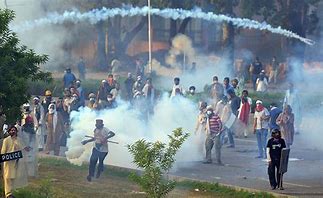

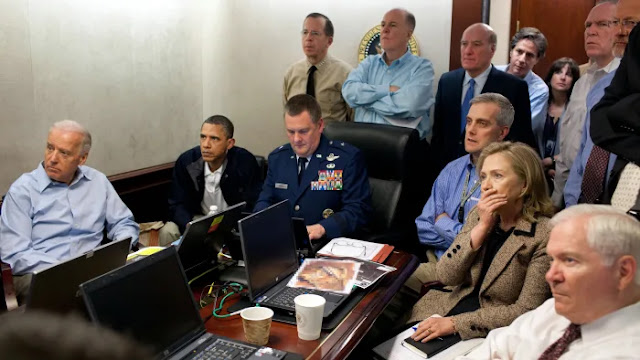
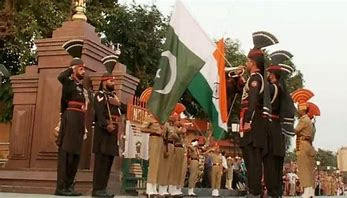
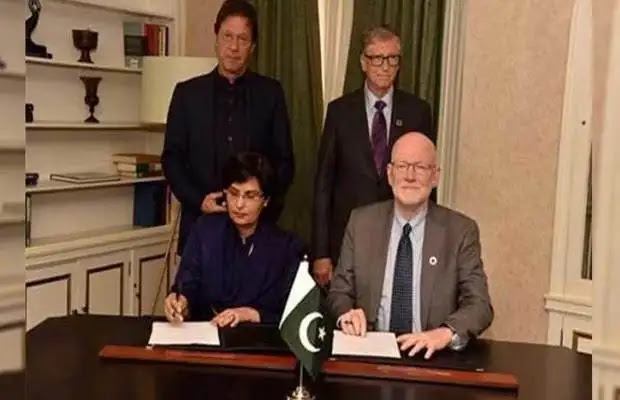
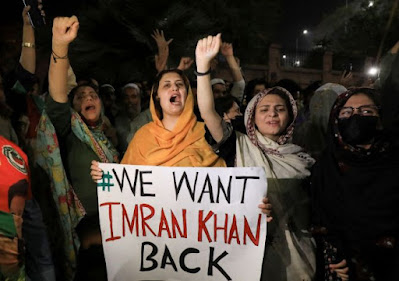
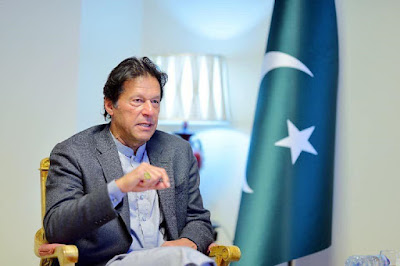
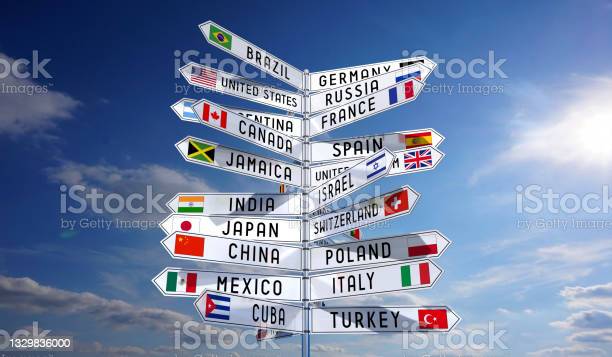
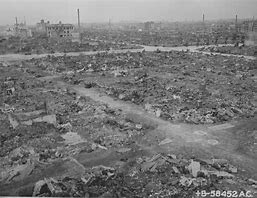
3 Comments